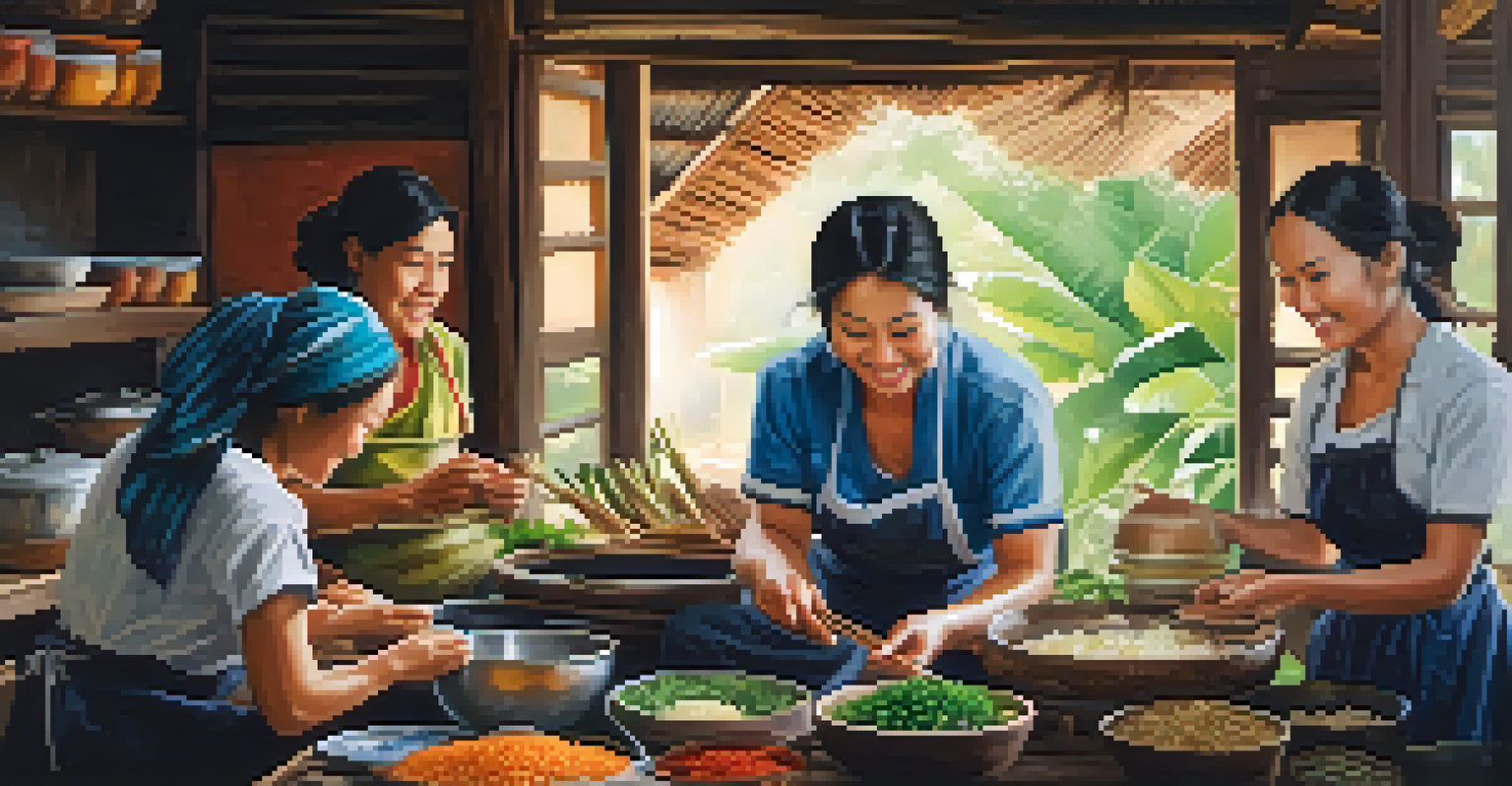Volunteer Opportunities in Rural Thailand: Make a Difference

Understanding the Need for Volunteers in Rural Thailand
Rural Thailand is a beautiful tapestry of culture and community, yet it often struggles with limited resources. Many villages face challenges such as inadequate education, healthcare, and infrastructure. Volunteers play a vital role in bridging these gaps, bringing fresh perspectives and much-needed assistance.
Volunteers do not necessarily have the time; they just have the heart.
By volunteering in these areas, you can contribute to sustainable development and help improve the quality of life for locals. Your involvement can lead to meaningful change, whether through education, health initiatives, or community projects. This is not just about giving; it’s about learning and growing alongside the community.
Moreover, the impact of volunteer work can be profound. For instance, teaching English or providing basic healthcare can open doors for local residents, enhancing their opportunities and empowering them to thrive. It’s an enriching experience that benefits both volunteers and the communities they serve.
Types of Volunteer Programs Available
There are various volunteer programs available in rural Thailand, catering to diverse skill sets and interests. Some popular options include teaching English, working on sustainable agriculture projects, and assisting in healthcare initiatives. Each program offers a unique opportunity to contribute to the community while immersing yourself in Thai culture.

For example, teaching English not only helps improve language skills but also boosts students' confidence and opens up future opportunities. Similarly, programs focused on agriculture can help locals adopt sustainable practices, ensuring food security and environmental preservation.
Volunteers Bridge Resource Gaps
Volunteers play a crucial role in supporting rural Thailand by addressing challenges in education, healthcare, and infrastructure.
Furthermore, healthcare volunteers can assist in clinics and outreach programs, addressing gaps in medical care. These programs are designed to be hands-on, allowing volunteers to engage directly with community members and see the tangible outcomes of their efforts.
How to Choose the Right Volunteer Program
Choosing the right volunteer program is crucial for a fulfilling experience. Start by considering your skills, interests, and the type of impact you want to make. Research different organizations and read reviews from past volunteers to understand their experiences and the effectiveness of the programs.
The best way to find yourself is to lose yourself in the service of others.
It's also essential to evaluate the program's structure, support system, and alignment with your values. Some programs may prioritize cultural immersion, while others may focus more on the projects themselves. Finding a balance that resonates with you will enhance your overall experience.
Lastly, consider the duration and location of the program. Whether you want to commit to a short-term project or a more extended stay, ensure it fits your schedule and allows you to explore the beauty of rural Thailand during your time off.
Cultural Immersion: A Key Benefit of Volunteering
One of the most rewarding aspects of volunteering in rural Thailand is the opportunity for cultural immersion. Living and working alongside locals allows you to experience their way of life firsthand, offering insights that typical tourism cannot provide. This deep connection fosters mutual understanding and respect between cultures.
Participating in local traditions, trying authentic Thai cuisine, and learning about the community's history enrich your experience. For instance, you might find yourself joining a village festival or learning traditional crafts, which can be both fun and educational.
Cultural Immersion Enhances Experience
Engaging with local traditions and communities fosters mutual respect and enriches the volunteer experience beyond typical tourism.
These experiences not only enhance your personal growth but also create lasting memories and friendships. The bonds formed with community members can lead to a greater appreciation for their culture and a desire to continue making a difference even after you leave.
Preparing for Your Volunteer Trip
Preparation is key to a successful volunteer trip. Begin by gathering essential information about your destination, such as cultural norms, climate, and necessary vaccinations. Understanding the local customs will help you engage respectfully and meaningfully with the community.
Additionally, packing wisely is important. Bring clothing suitable for both the climate and the activities you'll be involved in, as well as any personal items that may not be readily available in rural areas. A good first aid kit and any necessary medications should also be part of your packing list.
Lastly, mentally prepare for the challenges you might face. Adapting to a new environment can be daunting, but keeping an open mind and a positive attitude will help you navigate any difficulties. Remember, every challenge is an opportunity for growth.
Making a Lasting Impact: Your Role as a Volunteer
As a volunteer, your role extends beyond just completing tasks; it’s about building relationships and fostering community development. By actively engaging with locals and understanding their needs, you can tailor your efforts to create more significant and lasting impacts. Listening and learning from community members can guide your contributions effectively.
For instance, if you're volunteering in education, collaborating with local teachers can enhance your teaching methods and make lessons more relevant to the students. This collaborative approach ensures that your work resonates and continues even after you leave.
Post-Volunteer Connections Matter
Staying connected with the community after your volunteer work can lead to lasting impacts and continued support for local initiatives.
Ultimately, your presence and commitment can inspire local residents to pursue their dreams and take charge of their development. The ripple effect of your efforts can lead to transformative changes in the community, making your volunteer experience truly worthwhile.
Post-Volunteer Experience: Staying Connected
After your volunteer experience, staying connected with the community can enrich your journey. Many organizations encourage alumni to maintain relationships, providing opportunities for ongoing support and collaboration. This connection can be incredibly rewarding, as it allows you to witness the long-term effects of your contributions.
Consider sharing your experiences through social media or blogs to inspire others to volunteer. Your stories can motivate friends and family to engage in similar programs or support the cause you’ve become passionate about.

Moreover, continuing to support the community through donations or advocacy can make a significant difference. Even small contributions can help sustain projects and initiatives that are crucial for the community's growth, keeping the spirit of your volunteer work alive.